Ethnographic Research Essay: Principles & Methods
advertisement
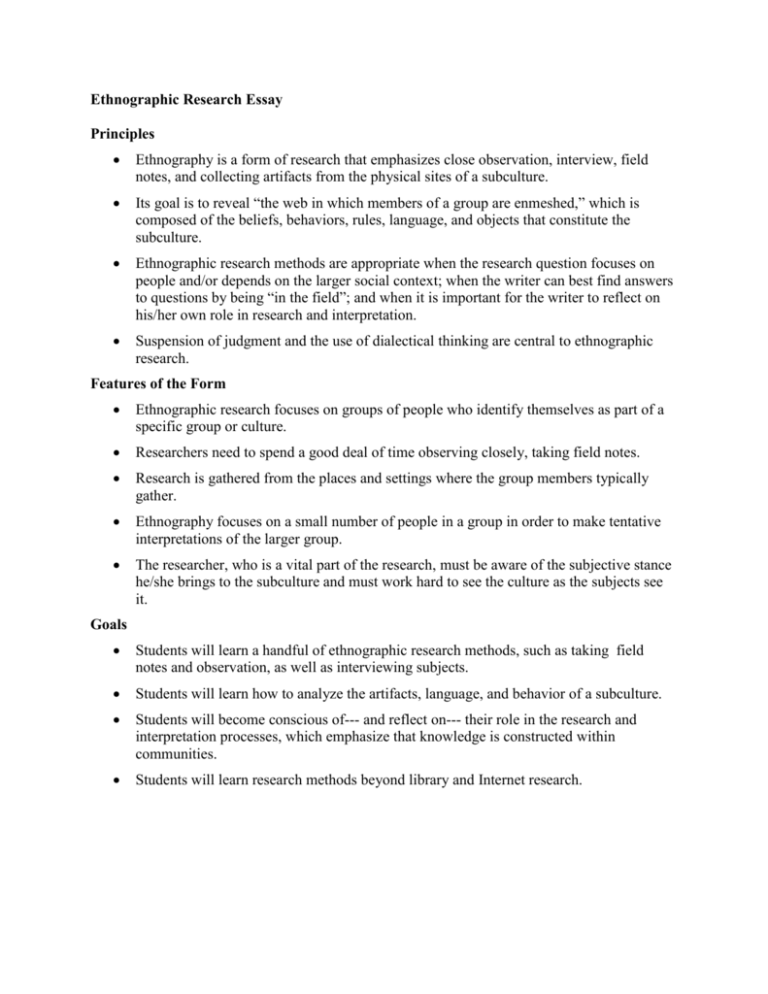
Ethnographic Research Essay Principles Ethnography is a form of research that emphasizes close observation, interview, field notes, and collecting artifacts from the physical sites of a subculture. Its goal is to reveal “the web in which members of a group are enmeshed,” which is composed of the beliefs, behaviors, rules, language, and objects that constitute the subculture. Ethnographic research methods are appropriate when the research question focuses on people and/or depends on the larger social context; when the writer can best find answers to questions by being “in the field”; and when it is important for the writer to reflect on his/her own role in research and interpretation. Suspension of judgment and the use of dialectical thinking are central to ethnographic research. Features of the Form Ethnographic research focuses on groups of people who identify themselves as part of a specific group or culture. Researchers need to spend a good deal of time observing closely, taking field notes. Research is gathered from the places and settings where the group members typically gather. Ethnography focuses on a small number of people in a group in order to make tentative interpretations of the larger group. The researcher, who is a vital part of the research, must be aware of the subjective stance he/she brings to the subculture and must work hard to see the culture as the subjects see it. Goals Students will learn a handful of ethnographic research methods, such as taking field notes and observation, as well as interviewing subjects. Students will learn how to analyze the artifacts, language, and behavior of a subculture. Students will become conscious of--- and reflect on--- their role in the research and interpretation processes, which emphasize that knowledge is constructed within communities. Students will learn research methods beyond library and Internet research.
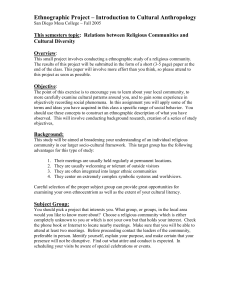
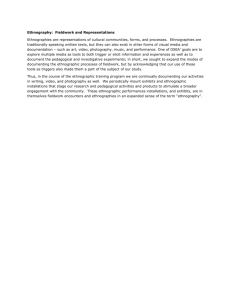
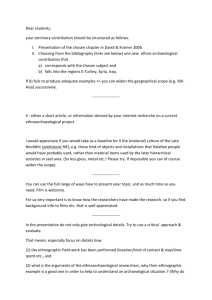
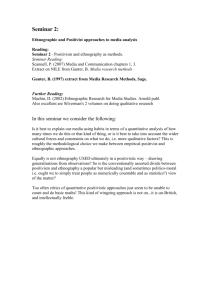
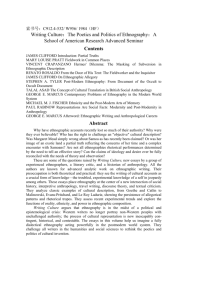

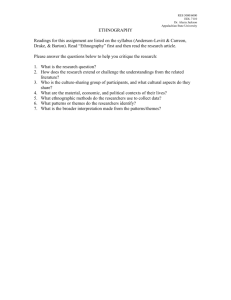
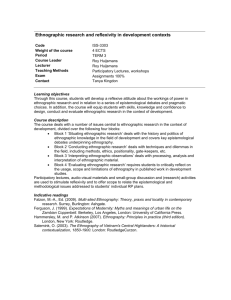
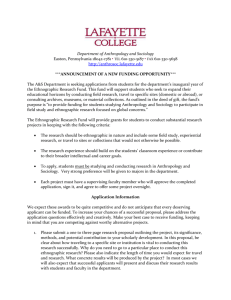
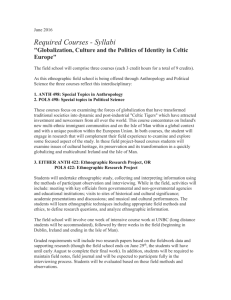
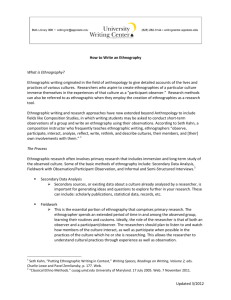
![QLR Presentation_Weis [PPT 256.50KB]](http://s2.studylib.net/store/data/015124303_1-564c60d05a6921d7a0cbf84ddeb7f16d-300x300.png)